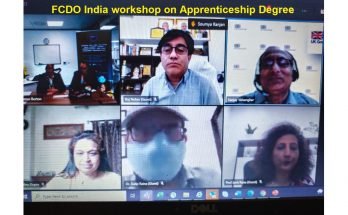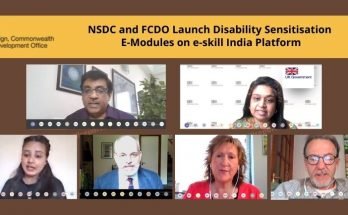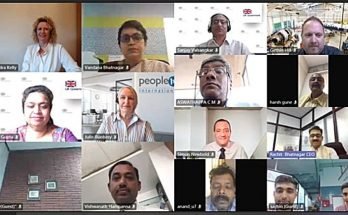The Skills for Jobs (SFJ) programme under the auspices of the Department of International Development (DFID), Government of United Kingdom in partnership with the Ministry of Skill Development and Entrepreneurship (MSDE) envisages a paradigm shift for empowering the persons with disability. To further this mandate, DFID organized two-day training programmes of trainers on Specialist teaching and training techniques in vocational training for inclusion of Persons with disability (PWD) in association with the Directorate General of Training (DGT).
The training programmes were held in National Skill Training Institute (NSTI) Mumbai from 24th – 25th February 2020 and Central Staff Training and Research Institute (CSTARI) Kolkata from 2nd – 3rd March 2020.
The training provided an exclusive platform for the Industrial Training Institutes (ITI) and Vocational Rehabilitation Centres (VRC) trainers to learn about disability, discrimination and strategies to support candidates with disability in training and employment.
The training programmes were facilitated by Mr. David Finch, Director, National Star College, and Ms. Jane Finch, Head, Teachers Education Program, National Star College. National Star Foundation is an award-winning charity based in UK working on holistic development of persons with disability.
Mr. SK Bhattacharjee, Joint Director, NSTI opened the event with a welcome address in NSTI Mumbai. Total 30 participants from various ITIs, VRCs and other training institutions working on skill training attended the training in Mumbai.
In Kolkata, the training was inaugurated by Dr. B.V.S Sesha Chari, Director, CSTARI. 20 participants from various ITIs attended the training.
Mr. Nick Low, British Deputy High Commissioner of West Bengal attended the valedictory at CSTARI on March 3rd, 2020. In his speech, Mr. Low emphasized the need of equal rights for developing a prosperous society. He said that the social stigma associated with disability must be removed for the world to move towards the said goal. He handed over the certificates to the participants.
This two-day training programme gave trainers the skills and knowledge in order to plan and deliver inclusive vocational teaching and training activities for learners who have different disabilities. The core elements of this training addressed specialist pedagogical approaches in order to understand the physiological and cognitive barriers to learning. Practical and theoretical strategies explored, provided the skills to enable trainers to differentiate their teaching and learning activities to meet the needs of learners with different disabilities in different vocational sectors and within employment.
This training program explored models of inclusive employment and the adjustments made to enable sustainable employment for people with different disabilities. The training incorporated unique opportunities for group work, contextualizing learning through case studies and problem solving, discussion and debate using interactive resources and activities.



